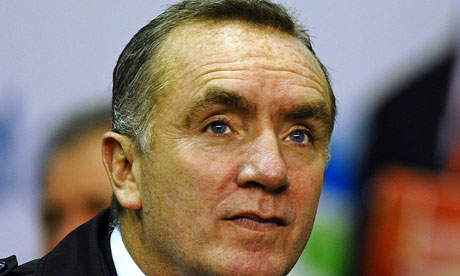
What is a league? According to the dictionary it is both "an association of persons, nations etc formed to promote the interests of its members" and "an association of sporting clubs that organises matches between teams of a similar standard". In football, however, it loosely describes a collection of fiefdoms each pursuing its own ends and to hell with the rest.
At least Ian Ayre, the managing director of Liverpool, has not attempted to pretend otherwise in pressing for an end to the idea of the Premier League selling television rights overseas on a collective basis with each club getting a guaranteed share of the proceeds, which at present amount to £1.4bn. Since more viewers in Kuala Lumpur want to watch Liverpool than Bolton, he argues, Anfield should get a bigger cut.
This already happens in Spain, where Real Madrid and Barcelona negotiate their own TV fees at home and abroad. "If Real Madrid or Barcelona or other big European clubs have the opportunity to truly realise their international media value potential where does that leave Liverpool and Manchester United?" he asks. "We'll just share ours because we'll all be nice to each other ?"
More ominously for the Premier League he believes that the future shape of the overall £3.2bn television deal "is a debate that has to happen". The immediate opposition of Manchester United and Chelsea to Ayre's proposal and the probability that the likes of Manchester City, Arsenal and Tottenham Hotspur will continue to back the present arrangement would appear to have stopped the idea in its tracks but in football, once the seed of a profitable wheeze has been sown, it tends to put down roots, whatever is said at the time.
Remember all those plans for a breakaway super league which were being put forward in the 1970s and 1980s? No one took them seriously until the Hillsborough disaster of 1989 begat the Taylor report, which demanded all‑seat stadiums and, along with the Sky television contract, virtually guaranteed a breakaway Premier League, with the rump of the old Football League left to pick over the crumbs.
If the big clubs ever do succeed in replacing the present equitable TV contract with a free-for-all it will be the result of expediency rather than another tragedy. Uefa has decreed that before long clubs will have to break even if they want to stay in the European tournaments. So either they will need to cut their wage bills or increase their income, with more television money the obvious answer should they decide to go with the latter. And if they are to continue to attract the best talents in order to compete with Barcelona and Real Madrid in the Champions League the former is not a serious option.
So the fans in Kuala Lumpur and Beijing or wherever may yet become even more serious players in realising the full "international media value potential" of Liverpool, United, City, Chelsea et al while poor old Bolton scrape by on a few faithful expat Trotters devotees drowning their sorrows in downtown Bangkok.
Predictably Ayre's ideas have upset the game's middle classes. According to the Wigan chairman, Dave Whelan, "you won't get more money by killing the heart and soul of the Premier League and killing the heart and soul of football in England". Whelan is apt to operate on hyperbolic steroids but since one logical conclusion of disturbing the balance of the TV money in favour of the big clubs could hasten the onset of a breakaway plutocratic European league his fears may not be exaggerated.
At the very least following the Spanish example in distributing future television income would further polarise a Premier League which has long since confined hopes of glory to a privileged clique with the rest fighting among themselves in order to stay up. There are only a certain number of oligarchs and sheikhs to go round.
On the equivalent October weekend of the first season in the Premier League, 1992-93, the top four places in the table were occupied by Norwich, Blackburn, Coventry and Queens Park Rangers. The quality of the football may have been inferior to what it is now and the biggest attendance that weekend was a mere 33,243 at Old Trafford for Manchester United against Liverpool but at least the hopes and fears were more evenly spread.
And nobody was much concerned with realising his international media value potential.

